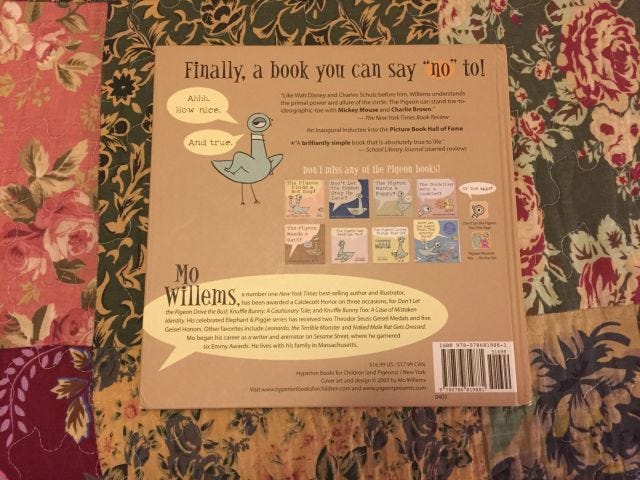Just Say No: When Extra Formatting Isn’t Necessary ⛔️ (Belated Edition of Strike-Through)

Recently, I’ve written about when to insert extra formatting for a word or phrase, particularly italics for non-English words and phrases in an English context.
Today I’m writing about several cases when you do not need extra formatting.
Saying no (and other similar expressions)
According to The Chicago Manual of Style, “Words such as yes, no, where, how, and why, when used singly, are not enclosed in quotation marks except in direct discourse” (13.40).
I really like CMOS’s example, mainly because my kid is named Ezra: “Ezra always answered yes; he could never say no to a friend.”
Some additional examples:
Parents need to learn to say no to their kids.
Toddlers like to ask why.
Here, the words no and why refer to the content being conveyed, not to the exact words being spoken. A parent who says, “Not right now,” or “You can’t have it,” or simply shakes his head is saying no to his child (and so, of course, is a parent who simply says, “No”).
But if you’re writing down dialogue or emphasizing the specific word that was used, you still put quotation marks around single-word speech:
“You won’t forget to send for me next spring, will you, dad [sic]?”
“No,” was all dad said.
—Jane of Lantern Hill by L. M. Montgomery
Names referred to as names
Usually when you refer to a word as a word, you put it in italics or quotation marks to show that you’re not using it in the typical sense (7.63):
The word apple starts with an A.
vs.
She ate an apple.
But what about a name referred to as a name? Is “We decided to give our daughter the name ‘Rose’” or “We decided to give our daughter the name Rose” correct?
CMOS says, “Proper nouns used as words . . . are usually set in roman” (7.63).
Proper nouns already have something extra to let us know they’re being used in a special sense: capitalization.
Things that are so-called
If you want to complain that the so-called experts got the weather wrong again, do you need quotation marks around “experts”?
CMOS says no: “The expression itself indicates irony or doubt” (7.59).
To use both quotation marks and the expression “so-called” is redundant. The following sentences have nearly equivalent meanings:
The so-called MVP of the high school team didn’t show up for half the games.
The “MVP” of the high school team didn’t show up for half the games.
Beating through the thicket of English, and always asking why,
Rebekah Slonim (with a coauthor, whose name is Daniel Slonim)

The back cover of Don’t Let the Pigeon Drive the Bus by Mo Willems. It’s a wonderful book, but those quotation marks around the word “no” aren’t needed.


